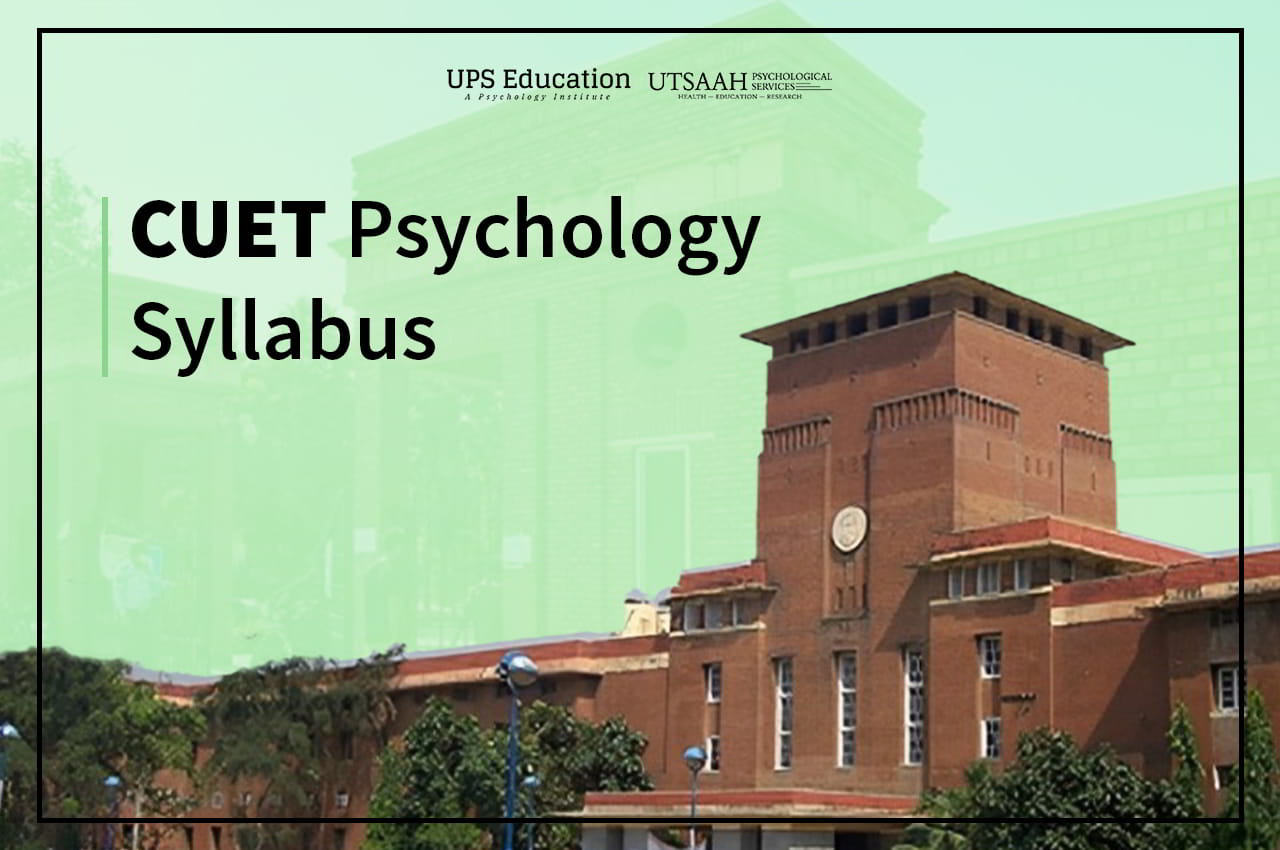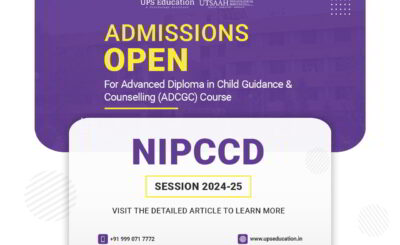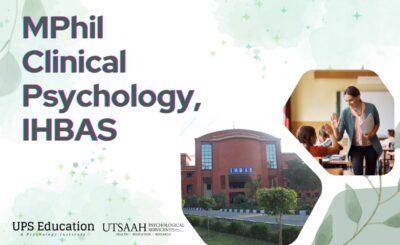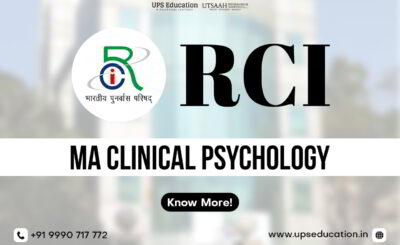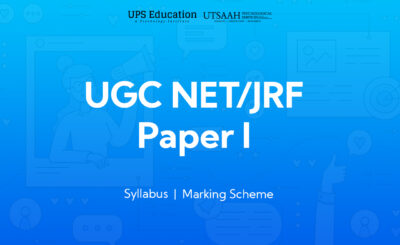![]()
The Common University Entrance Test (CUET) has become a national-level examination for students aspiring to join various undergraduate and postgraduate programs in participating universities/institutions across India. This article focuses on every detail of the CUET exam, its requirements, and the syllabus for BA and MA Psychology courses.
What is CUET?
The Common University Entrance Test is a nationwide common entrance exam conducted by the National Testing Agency (NTA). It is a unified platform for students seeking admission to undergraduate (UG) and postgraduate (PG) programs in multiple Central, State, and private universities.
The CUET aims to simplify the admission process by providing a single entrance examination for various UG and PG courses. CUET also offers equal opportunities for students across the country, especially those from rural and remote areas, and helps them establish better connections with the Universities in PAN India.
What is NTA?
The Ministry of Education (MoE) established the National Testing Agency (NTA) as an independent and autonomous testing organization.
The National Testing Agency is known for conducting efficient, transparent, and reliable entrances/tests to assess candidates for admission to top higher education institutions. The NTA also conducts various employment exams in different departments of the Govt. of India.
Some of the major exams conducted by NTA are JEE, NEET, CMAT, NET, CUET UG, and CUET PG.
CUET Exams for Psychology
CUET or Common University Entrance Test is one of the important exams for all the students who wish to pursue their Bachelor’s in Psychology (BA/BSc in Psychology) or a Master’s degree in Psychology (MA/MSc in Psychology). Those who want to get a bachelor’s in Psychology need to appear in CUET -UG and the aspirants who wish to pursue a master’s in psychology need to appear for the CUET-PG exam.
Let’s understand these two exams one by one.
CUET-UG Psychology
CUET UG is compulsory for admission to all central universities in India and is also considered by many state government and private universities for admission to undergraduate courses. Students seeking a BA or BSc in Psychology must appear for the CUET UG exam. Click here to see the complete list of participating universities in CUET UG.
- Eligibility: Candidates must have completed or be appearing for their Class 12 (or equivalent) examination from a recognized board.
- Application Process: Candidates must fill out the CUET-UG application form online through the official NTA website, providing the necessary academic and personal details.
Exam Pattern: CUET-UG Psychology
Mode of exam: Hybrid mode (Pen & Paper/ Computer Based Test (CBT) mode.
Medium of test: CUET UG is being held in 13 languages including Hindi and English.
Number of Questions: Students need to answer 40 out of 50 questions in language or domain subject tests, and 50 out of 60 questions in general tests.
Choice of Test Paper: A candidate and select a maximum of up to 6 test papers, the test papers should be selected by the candidate very carefully after checking the requirements of the desired university or college where s(he) is willing to enroll.
The combination of tests can be different for various institutions. For instance, the University of Delhi requires a student to appear in a total of 4 tests which are further divided into 1 language and 3 subjects that a candidate studied in their 12th standard.
At the same many other universities require a language test and general test for BA or BSc Psychology admission.
Also Read- BA Psychology colleges under University of Delhi
Syllabus of CUET UG Psychology
| Language | Questions from the Language Section will be from the following topics: 1. Reading Comprehension: There will be three types of passages (maximum 300-350 words): i. Factual ii. Narrative ii. Literary 2. Verbal Ability 3. Rearranging the parts 4. Choosing the correct word 5. Synonyms and Antonyms 6. Vocabulary |
| General Test | The Question paper will contain questions from the following topics: General Knowledge, Current Affairs, General Mental Ability, Numerical Ability, Reasoning (Simple application of basic mathematical concepts Quantitative Arithmetic/ algebra Geometry/mensuration/statistics), Logical and Analytical Reasoning. |
| Subject Domain (Psychology) | The syllabus for any domain subject is based on the 12th standard. CUET UG Psychology (Domain Syllabus) Unit 1: Variations in Psychological Attributes Individual differences Assessment of psychological attributes Thorndike multifactor theory, Primary mental abilities, Fluid & Crystallized intelligence, multiple intelligence theory, Pass model, Triarchic theory. Culture and Intelligence, Special abilities, Aptitude- Nature, and Measurement, Creativity, Emotional Intelligence. Unit 2: Self and Personality Self-esteem, self-efficacy, and self-regulation; culture and self; Concept of Personality, Allport trait theory, Eysenck personality traits, Cattell’s personality theory, five-factor model of personality, psychoanalytical perspective, Neo-Freudian, MMPI, 16PF, California psychological inventory, other self-report measure, Rorschach, thematic apperception test. Unit 3: Meeting Life Challenges Nature, types, and sources of stress: Effects on psychological functioning and health; Coping with stress; Promoting positive health and well-being; Conflict and stress; General adaption syndrome Unit 4: Psychological disorders Concepts of abnormality and psychological disorders; Classification of disorders; Major Psychological disorders; Anxiety disorder, somatic symptoms & related disorders; depressive disorder; Schizophrenia spectrum & other psychotic disorders; Neurodevelopmental disorders, substance-related & addictive disorder. Unit 5: Therapeutic Approaches Nature and process of theory: Therapeutic relationship: Types of therapies: Psychodynamic, Humanistic, Cognitive, Behaviour, and Bio-medical; Alternative therapies – Yoga, Meditation; Rehabilitation approach. Unit 6: Attitude and Social Cognition Impression formation; Social cognition; Schemas and stereotypes; Nature and components of attitudes; Attitude formation and change; Behaviour in the presence of others; Pro-social behavior; Prejudice and discrimination; Strategies for handling prejudice; Attribution, Attribution error, Interpersonal attraction. Unit 7: Social Influence and Group Process Conformity, Obedience, and Compliance; Cooperation and competition; Nature and formation of the group; Types of a group; Social identity; Influence of the group on individual behavior; Inter-group conflicts; Conflict resolution strategies. Unit 8: Psychology and Life Noise, Pollution, crowding, natural disasters; Promoting pro-environmental behavior; Psychology and social concerns; Aggression, Violence Peace, Discrimination and Poverty, health, the impact of television on behavior, impact of social media; Population. Unit 9: Developing Psychological Skills Observational skills, Interviewing skills, Testing skills, Counselling skills- Empathy, authenticity, positive regard, and communication skills—listening. |
CUET PG Psychology
Similar to the CUET UG, the CUET PG is also conducted by NTA once a year in March (tentatively). CUET PG Psychology (HUQP20) is conducted for admission in MA/MSc Psychology courses at various central universities, state universities, and private universities and colleges. Click here to see the list of universities accepting CUET PG scores for MA/MSc Psychology admission.
- Eligibility:
- Candidates must have completed or be in the final year of their undergraduate degree in Psychology from a recognized university. Students from Non-Psychology backgrounds are also eligible to write CUET PG Psychology (HUQP20).
- Candidate must check the eligibility for each university as the eligibility differs from one to another university. Click here to see a list of universities where non-psychology graduates are eligible.
- Application Process: Similar to UG admissions, candidates must apply online via the NTA website, submitting relevant personal and academic details.
Must Read – CUET PG Psychology Step-wise Admission Process
Exam Pattern –CUET PG Psychology
Mode of exam: Computer Based Test (CBT) mode
Medium of Test: English and Hindi (Bilingual)
Number of Questions: 75 (MCQs)
Duration of Exam: 105 Minutes.
CUET PG Psychology Syllabus
Following are the chapters in the CUET PG Psychology syllabus.
- Introduction to Psychology
- History of Psychology
- Schools of Psychology
- Biological Bases of Behavior
- Learning, Memory
- Sensation and Perception
- Emotion and Motivation
- Intelligence
- Personality
- Psychological Testing
- Life-span Development
- Abnormal and Clinical Psychology
- Statistics for Psychology.
The topics/chapters mentioned above are specially for CUET PG, but students should also add some more topics in this syllabus if they want to write other master’s psychology entrances like Christ, Jamia Milia Islamia, NFSU, and other colleges in Mumbai and Bangalore.
Students may add some other topics like; Industrial Psychology, Problem Solving, and Research Methodology.
Also read: How to prepare for CUET PG Psychology
List of Recommended Books:
There are various books and guides to study for the entrance test. We have mentioned the topic-specific book and authors for your entrance examination.
Introduction to Psychology: Ciccarelli or Baron
Social Psychology: Baron Robert
Theories of Personality: Bem P Allen
Human Development: Laura Berk
Bio-Psychology: by Dr Arvind Otta
Cognitive Psychology: Robinson-Riegler
Statistics: Quinn McNemar / Minium
Research Method: Lewin & Fox
Psychological Testing: Ronald Jay Cohen and Mark E. Swerdlik
Abnormal Psychology: Sarason and Sarason or Davison & Neale
Clinical Psychology: Alan Carr / Hecker and Geoffrey
Industrial Psychology: Michael Aamodt
Latest Advancement: Follow Psychology Journal or Magazine. You can also refer to Psychologs Magazine
MCQs and PYQs Book for Master’s Psychology Entrance
I recently embarked on the journey of cracking the psychology entrance exam and A huge part of that success goes to UPS education. Arvind Sir's teaching method has been exceptional. He didn't just present the material, he truly elaborated on each topic and his explanation style resonated perfectly with me, making the learning sure that the learning process was engaging and effective. As a part of the course, comprehensive books and study materials were provided as well. They were updated with new information and practice questions, helping me identify areas for improvement and focus my studying. The mock series were meticulously designed to cover every aspect of the psychology curriculum, incorporating past years' papers and mimicking the actual exam format. Taking these mock tests gave me insights into my strengths and weaknesses, boosting my confidence for the real exam. Overall, my experience at UPS Education has been comprehensive and truly worthy of the investment. If you're aiming to ace your psychology entrance exam, I highly recommend them.– Shabnam Rahman
